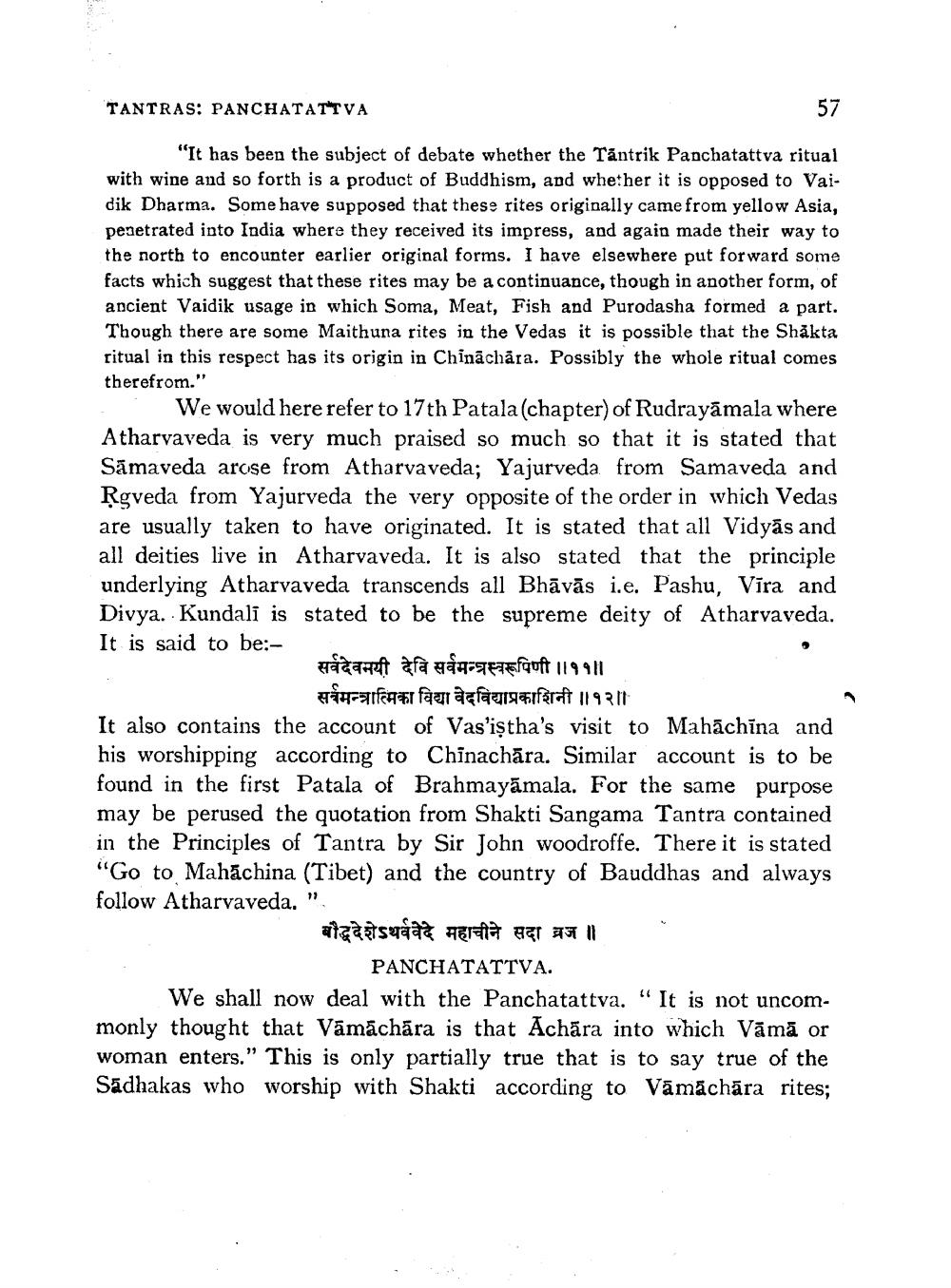________________
TANTRAS: PANCHATATTVA
57
"It has been the subject of debate whether the Tántrik Panchatattva ritual with wine and so forth is a product of Buddhism, and whether it is opposed to Vaidik Dharma. Some have supposed that these rites originally came from yellow Asia, penetrated into India where they received its impress, and again made their way to the north to encounter earlier original forms. I have elsewhere put forward some facts which suggest that these rites may be a continuance, though in another form, of ancient Vaidik usage in which Soma, Meat, Fish and Purodasha formed a part. Though there are some Maithuna rites in the Vedas it is possible that the Shăkta ritual in this respect has its origin in Chinachāra. Possibly the whole ritual comes therefrom."
We would here refer to 17th Patala (chapter) of Rudrayāmala where Atharvaveda is very much praised so much so that it is stated that Sāmaveda arose from Atharvaveda; Yajurveda from Samaveda and Rgveda from Yajurveda the very opposite of the order in which Vedas are usually taken to have originated. It is stated that all Vidyās and all deities live in Atharvaveda. It is also stated that the principle underlying Atharvaveda transcends all Bhāvās i.e. Pashu, Vīra and Divya. Kundali is stated to be the supreme deity of Atharvaveda. It is said to be;
सर्वदेवमयी देवि सर्वमन्त्रस्वरूपिणी ॥११॥
सर्वमन्त्रात्मका विद्या वेदविद्याप्रकाशिनी ॥१२॥ It also contains the account of Vas'iştha's visit to Mahāchina and his worshipping according to Chinachāra. Similar account is to be found in the first Patala of Brahmayāmala. For the same purpose may be perused the quotation from Shakti Sangama Tantra contained in the Principles of Tantra by Sir John woodroffe. There it is stated "Go to Mahāchina (Tibet) and the country of Bauddhas and always follow Atharvaveda."
बौद्धदेशेऽथर्ववेदे महाचीने सदा व्रज ॥
PANCHATATTVA. We shall now deal with the Panchatattva. " It is not uncommonly thought that Vāmāchāra is that Achāra into which Vāmā or woman enters." This is only partially true that is to say true of the Sadhakas who worship with Shakti according to Vāmächāra rites;




